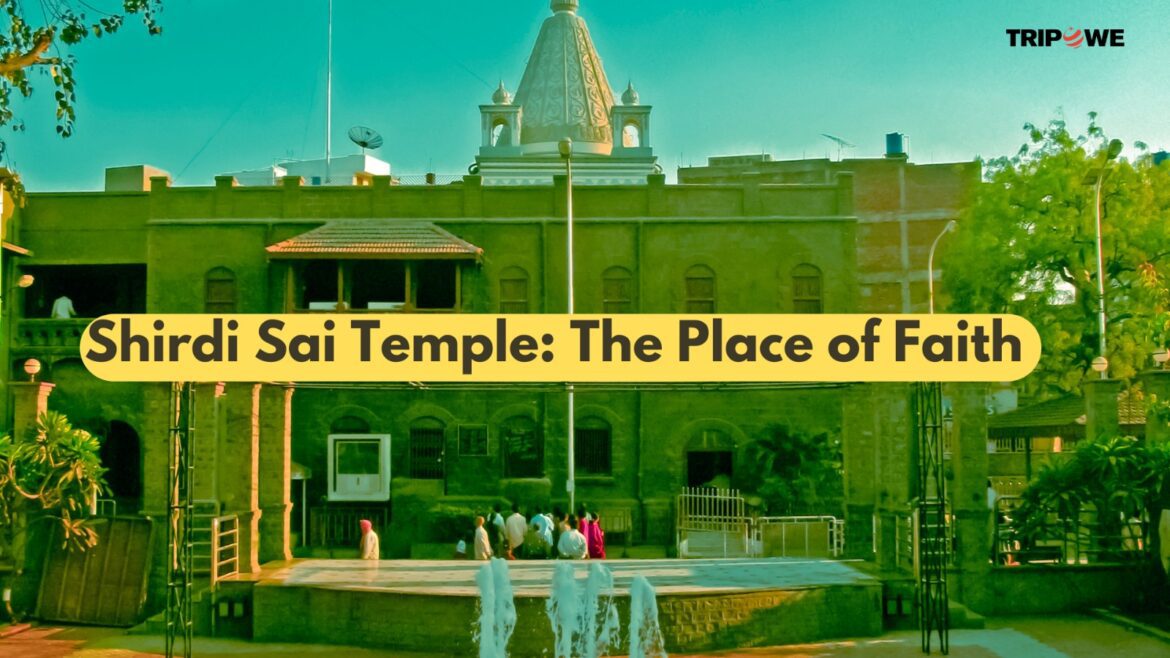Shirdi Sai Temple is located in Shirdi town in Ahmednagar district of Maharashtra state and is an important religious place for the devotees of Sai Baba. Sai Baba, who is regarded as an epitome of devotion and saburi (patience), spent most of his life in Shirdi. The construction of this temple started during Baba’s lifetime and now it is the center of lakhs of devotees who come here from all over the country and abroad to see Baba.
History
Sai Baba is believed to have entered Shirdi in 1858 and while staying there, gave the message of spirituality and humanity to the people. Baba passed away in 1918 in Shirdi after leading a simple and selfless life. . After his demise, devotees of Sai Baba built a temple on his Samadhi. Construction of the Shirdi Sai Temple began in 1922 and is run by the Sri Sai Baba Sansthan Trust.Along with the temple, this trust also operates other facilities, which are engaged in serving the devotees.
About neem tree
The Neem tree in Shirdi, also known as the “Udi tree” or the “Gurusthan tree”, is an important part of Sai Baba’s life. This tree is known as the first hideout of Sai Baba in Shirdi. It is said that Baba had performed penance here for many years.Baba blessed the followers and delivered numerous discourses while seated beneath this neem tree. Even today, devotees come to this holy place with great devotion and pray for the blessings of Sai Baba.
about Coins in Sai mandir
Coins have special significance in Shirdi, especially as symbols of Sai Baba’s blessings. Devotees offer coins as donations to Shirdi Sai Temple, which is a symbol of their reverence and faith. These coins are collected by the temple trust and various religious and social works are carried out through them. Even during the lifetime of Sai Baba, he had given coins to his devotees as a blessing, which even today the devotees consider auspicious for themselves.
Opening and Closing timing of Shirdi Sai temple
The Shirdi Sai Baba Temple opens its doors early in the morning, usually around 4 AM, for devotees to begin their prayers and offerings. It remains open throughout the day until late evening, typically closing around 10 PM. These timings ensure that devotees have ample time to visit, worship, and seek.
How to visit Shirdi
Air Travel: Shirdi has its own airport, which is connected to various major cities of the country. Furthermore, the nearest international airport is located in Mumbai, approximately 250 kilometers from Shirdi.
Rail Travel: Shirdi has Sai Nagar railway station, which is connected to major cities of India. Furthermore, Manmad Junction is also the nearest major railway station, approximately 60 kilometers away from Shirdi.
By Road: Shirdi is connected by good roads and buses and taxis are available from different parts of the country.
accommodation arrangements
There are many options for accommodation in Shirdi, according to the different needs and budget of the devotees. Dharamshalas, hotels and guest houses are available here for all types of travelers. Shri Sai Baba Sansthan Trust also provides accommodation facilities for devotees at reasonable prices.
average budget
The budget for a trip to Shirdi depends on your mode of travel, accommodation and food facilities. Generally, an average budget for a trip to Shirdi for a single person could be as follows:
Travel expenses: ₹5000-₹10000 for air travel, ₹500-₹3000 for rail travel, and ₹1000-₹5000 for road travel.
Stay: ₹200-₹500 per night charged dharamshalas, ₹1000-₹3000 per night charged in simple hotels, and ₹3000-₹10000 per night charged in luxury hotels.
Food expenses: ₹300-₹1000 per day.
conclusion
Shirdi Sai Temple is an important religious and spiritual place, where devotees seek mental peace and spiritual satisfaction by taking shelter of Sai Baba. Baba’s teachings and ideas continue to impart humanism, simplicity, and service to people even now. . A visit to Shirdi not only connects the devotees with the blessings of Baba but also provides them with a rich historical and cultural experience.

